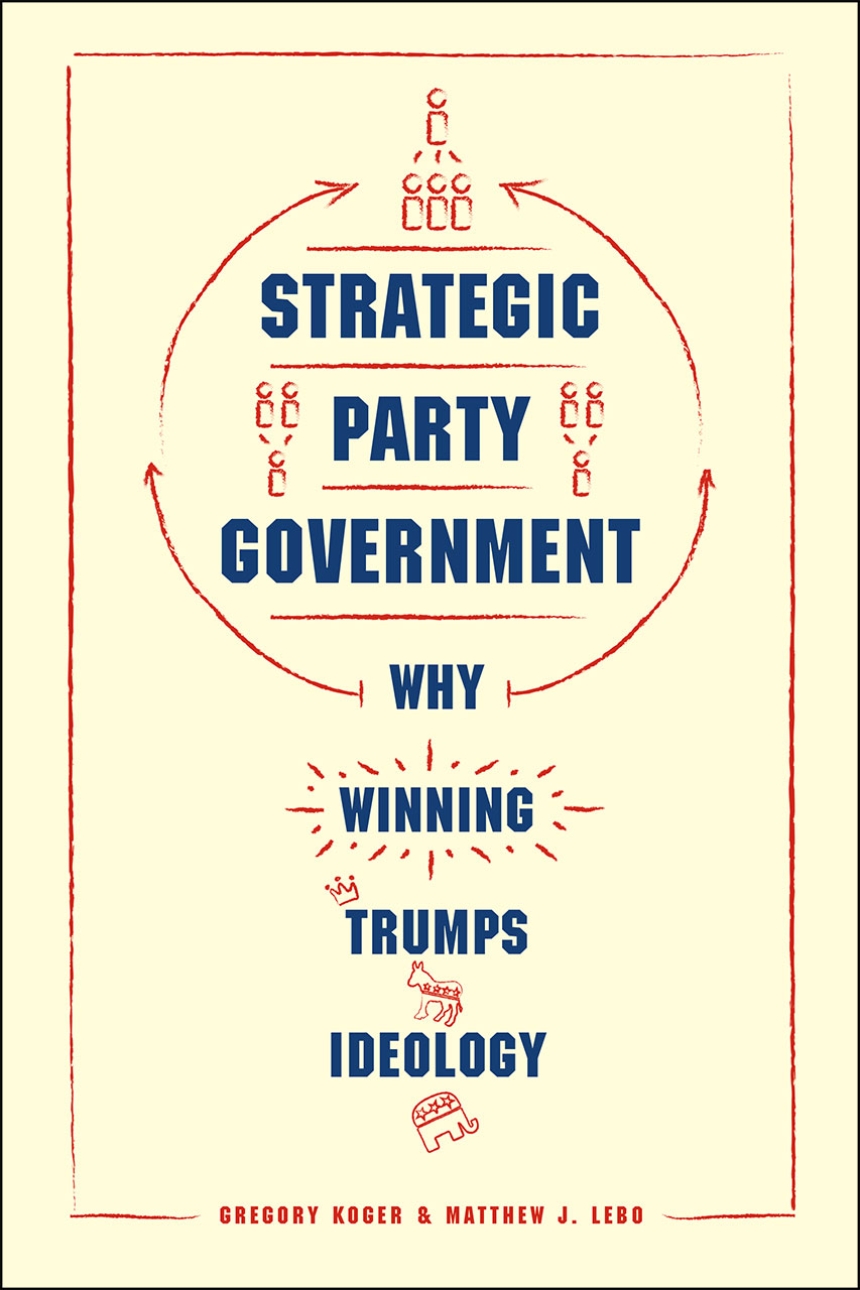Strategic Party Government
Why Winning Trumps Ideology
Why is Congress mired in partisan polarization? The conventional answer is that members of Congress and their constituencies fundamentally disagree with one other along ideological lines. But Gregory Koger and Matthew J. Lebo uncover a more compelling reason that today’s political leaders devote so much time to conveying their party’s positions, even at the expense of basic government functions: Both parties want to win elections.
In Strategic Party Government, Koger and Lebo argue that Congress is now primarily a forum for partisan competition. In order to avoid losing, legislators unite behind strong party leaders, even when they do not fully agree with the policies their party is advocating. They do so in the belief that party leaders and voters will reward them for winning—or at least trying to win—these legislative contests. And as the parties present increasingly united fronts, partisan competition intensifies and pressure continues to mount for a strong party-building strategy—despite considerable disagreement within the parties.
By bringing this powerful but underappreciated force in American politics to the forefront, Koger and Lebo provide a new interpretation of the problems facing Congress that is certain to reset the agenda for legislative studies.
In Strategic Party Government, Koger and Lebo argue that Congress is now primarily a forum for partisan competition. In order to avoid losing, legislators unite behind strong party leaders, even when they do not fully agree with the policies their party is advocating. They do so in the belief that party leaders and voters will reward them for winning—or at least trying to win—these legislative contests. And as the parties present increasingly united fronts, partisan competition intensifies and pressure continues to mount for a strong party-building strategy—despite considerable disagreement within the parties.
By bringing this powerful but underappreciated force in American politics to the forefront, Koger and Lebo provide a new interpretation of the problems facing Congress that is certain to reset the agenda for legislative studies.
Read the chapter one.
224 pages | 40 figures, 16 tables | 6 x 9 | © 2017
Chicago Studies in American Politics
Political Science: American Government and Politics, Political Behavior and Public Opinion
Reviews
Table of Contents
Preface
Chapter 1. Worst. Congress. Ever. Why?Chapter 2. A Theory of Strategic Parties
Chapter 3. Microlevel Foundations: Do Citizens Dislike Partisanship or Extremism? (Coauthored with Everett Young)
Chapter 4. The Electoral Costs of Party Loyalty in Congress (Coauthored with Jamie Carson and Ellen Key)
Chapter 5. The Effects of Legislative Behavior on Aggregate Election Outcomes
Chapter 6. The Dynamics of Partisan Power
Chapter 7. Party Competition in Legislative Voting
Chapter 8. Conclusion
Notes
References
Index
References
Index
